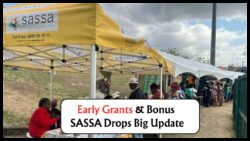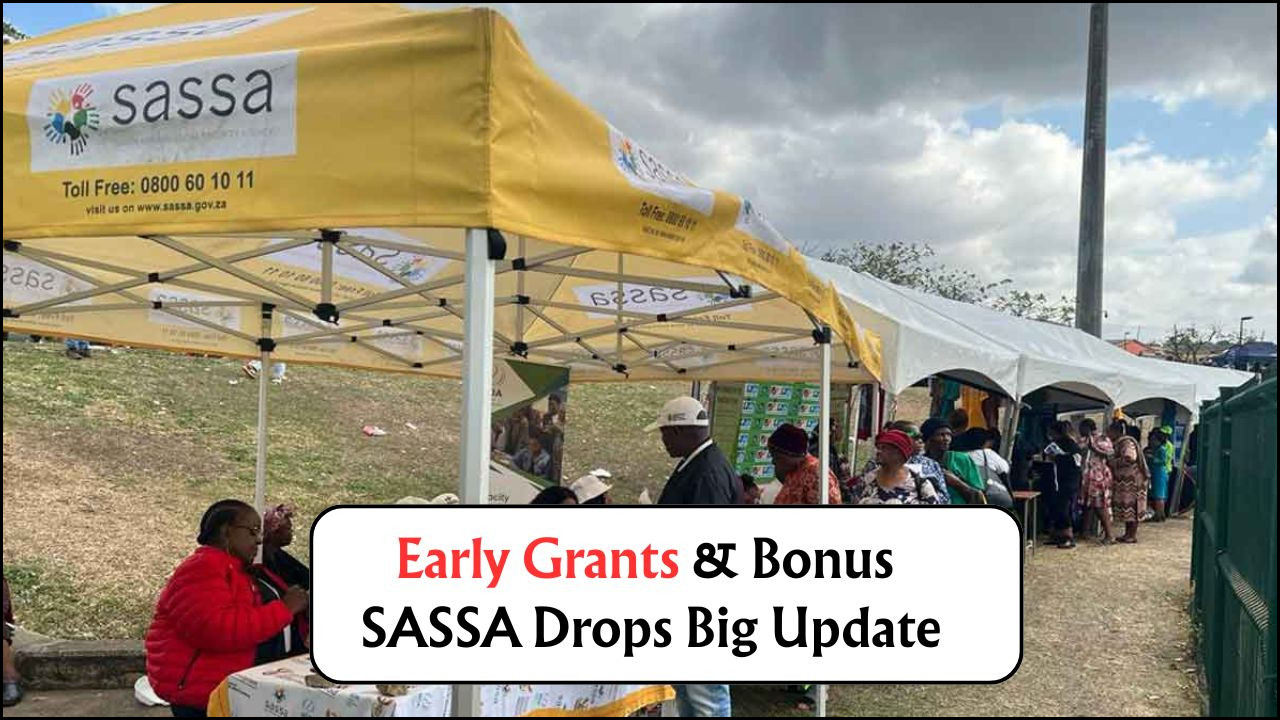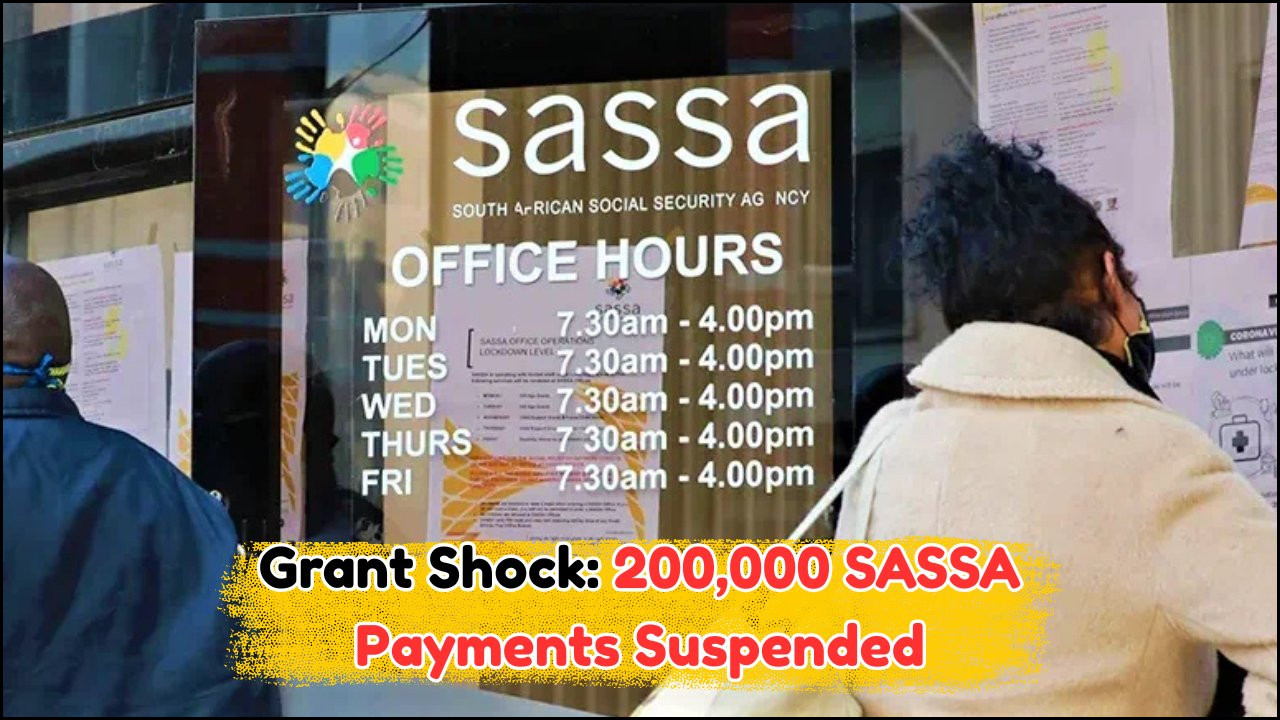SASSA New Grant Rule: The South African Social Security Agency (SASSA) has implemented a significant change to its grant disbursement policy. Starting from 15 July, each household will be limited to receiving only one grant. This new rule aims to streamline the distribution process and ensure that resources are allocated more effectively to those in need. While this policy is intended to eliminate cases of multiple grants per household, it has raised concerns and questions among beneficiaries who rely heavily on these grants for daily sustenance. As the new rule takes effect, households with multiple beneficiaries must take immediate action to comply, or they risk facing disqualification.
Understanding the SASSA Grant Policy Change
With the introduction of the new SASSA rule, understanding the implications is crucial for the affected citizens. The policy is designed to address the challenges of grant abuse and ensure equitable distribution across South African communities. By limiting grants to one per household, SASSA aims to reach a wider audience of needy individuals who might have been previously overlooked due to the concentration of benefits within certain households. This change will also help in maintaining the financial sustainability of the grant system.
- Why the change was necessary
- How it affects current beneficiaries
- Steps to take for compliance
- Potential impacts on poverty alleviation
- Future prospects for grant distribution
- Resource allocation improvement
- Ensuring equitable access
- Reducing fraud and misuse
SASSA Grant Impact Analysis
| Household Type | Current Beneficiaries | New Beneficiaries | Disqualified |
|---|---|---|---|
| Single-parent | 2 | 1 | 1 |
| Extended family | 4 | 1 | 3 |
| Orphanage | 5 | 1 | 4 |
| Multi-generational | 3 | 1 | 2 |
| Rural community | 6 | 1 | 5 |
| Urban household | 3 | 1 | 2 |
| Small family | 2 | 1 | 1 |
Adapting to the New SASSA Guidelines
Adapting to the new SASSA guidelines requires beneficiaries to act quickly and ensure compliance to avoid disqualification. Households must review their current grant status and determine who among them will continue to receive the grant. The selection process should consider the most vulnerable member who relies heavily on the grant for survival. Additionally, beneficiaries should stay informed about any updates or assistance programs that might be introduced to support those affected by the policy change.
- Review current grant status
- Select the primary beneficiary
- Stay informed about updates
- Seek alternative support programs
- Prepare necessary documentation
Potential Challenges and Solutions
While the new SASSA rule aims to improve the distribution of resources, it also presents several challenges for affected households. Some families may struggle to adapt, especially those with multiple dependents. However, solutions are being explored to mitigate these challenges. Community support systems and local NGOs can play a vital role in assisting families during this transition period. Additionally, SASSA is expected to provide guidance and support to ensure a smooth implementation of the new policy.
- Challenges in adapting to the new rule
- Role of community support systems
- Assistance from local NGOs
- SASSA’s guidance and support
- Ensuring a smooth transition
- Addressing financial pressures
Community Response to SASSA Changes
| Community Type | Response | Support Systems | Outcome |
|---|---|---|---|
| Urban | Proactive | NGO partnerships | Positive |
| Rural | Resistant | Community meetings | Neutral |
| Suburban | Mixed | Local councils | Positive |
| Township | Adaptive | Peer support groups | Positive |
| Coastal | Cautious | Charity drives | Neutral |
| Inland | Encouraging | Workshops | Positive |
Long-term Effects of SASSA’s New Rule
The long-term effects of SASSA’s new rule will likely influence the social and economic landscape of South Africa. By ensuring that grants reach a broader range of households, the policy could contribute to reducing poverty levels and improving the quality of life for many citizens. However, it is essential to monitor the implementation closely to address any unintended consequences, such as increased financial strain on households that previously relied on multiple grants.
 SASSA Announces Crucial Updates: July–August Grant Payment Dates and Eligibility Criteria Revealed!
SASSA Announces Crucial Updates: July–August Grant Payment Dates and Eligibility Criteria Revealed!
- Reduction in poverty levels
- Improvement in quality of life
- Monitoring of policy implementation
- Addressing unintended consequences
- Ensuring sustainable support
FAQs about SASSA’s One Grant Policy
What is the new SASSA grant rule?
The new rule limits households to one grant to ensure equitable distribution.
When does the policy take effect?
The policy is effective from 15 July.
Who will be disqualified?
Households with multiple beneficiaries not complying with the new rule.
How can households adapt?
By selecting one member to continue receiving the grant and seeking alternative support.
What support is available?
Community resources and guidance from SASSA.






